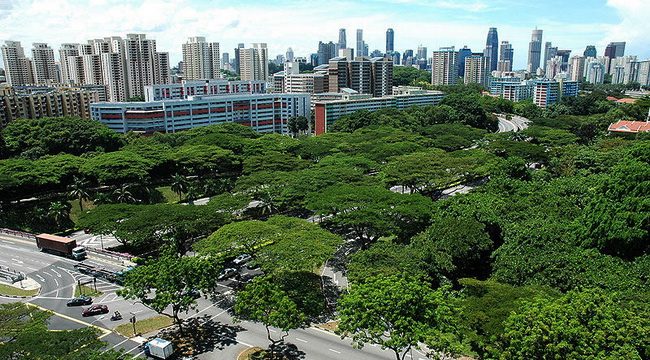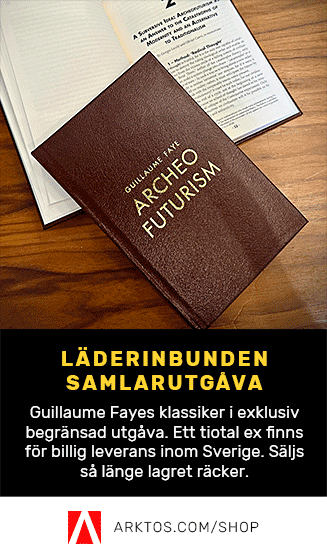Ett av John Stuart Mills idéhistoriskt mest fascinerande resonemang rör det så kallade stationära tillståndet. Klassiska politiska ekonomer, inklusive David Ricardo och Thomas Malthus, utgick från att perioden av tillväxt på sikt skulle nå sitt slut. Detta kunde bero på att i takt med att befolkningen ökade togs allt sämre jord i bruk för livsmedelsproduktion, maten blev allt dyrare och med den också lönerna. Tills lönerna blev så höga att tillväxten upphörde. Detta antog de flesta före Mill skulle bli en framtid präglad av misär, lönerna skulle visserligen vara höga men det skulle bero på att maten var så dyr. Några sötebrödsdagar väntade alltså inte för arbetarna, snarare en tillvaro på existensminimum.
Mill hade en delvis annan syn på det stationära tillståndet. Han menade, inspirerad av Malthus befolkningsteori, att om arbetarna på eget bevåg minskade sitt barnafödande skulle lönerna öka som följd av begränsat utbud av arbete istället. Det stationära tillståndet kunde då inträda men utan inslaget av misär. I Principles of Political Economy utvecklade han, bland annat, sin syn på detta, med ett betydande inslag av både civilisations- och samhällskritik. Det är en läsvärd genomgång av Mills syn på politisk ekonomi, där han bland annat argumenterade mot att staten ska ha större inflytande över samhälle och ekonomi än nödvändigt.
Det sägs ibland att liberalism och socialism är syskonideologier, detta märks tydligt i Mills verk. Släktskapet med Marx är rentav betydande. Mill utgick, i likhet med Marx, från tidens ekonomiska teorier. Men han hade också en liknande syn på fenomenet klass. Mill skrev:
I do not recognize as either just or salutary, a state of society in which there is any ’class’ which is not labouring; any human beings, exempt from bearing their share of the necessary labours of human life, except those unable to labour, or who have fairly earned rest by previous toil. So long, however, as the great social evil exists of a non-labouring class, labourers also constitute a class, and may be spoken of, though only provisionally, in that character.
Evola och Klages hade en annan syn på ”arbete”, men Mill och Marx utgick i princip från att ”den som inte arbetar ska heller inte äta” och att klass är ett ekonomiskt begrepp. Mill utgick också från sin egen nyttomaximerande tid när han försökte förstå äldre tiders samhällen och relationer (”the relation of protector and protected”). Man missar då flera aspekter av exempelvis det feodala samhällets relationer av lojalitet. Både Mill och Marx var också feminister, Mill använde här ett språkbruk mer i linje med vår tids feminism än den kyligare Marx. Han skrev att ”that there should be no option, no other career possible for the great majority of women, except in the humbler departments of life, is a flagrant social injustice.” Mödraskap reduceras här till ”the humbler departments”, Mill använde också orättviseretorik på ett sätt som Marx mer sällan gjorde. Som liberal individualist talade Mill också om ”the accident of sex” i sammanhanget, i grunden är alla individer och kön et cetera är sekundära egenskaper. Intressant i sammanhanget är däremot att Mill misstänkte att kvinnors industriella och sociala oberoende skulle minska överbefolkningen, sannolikt en korrekt förutsägelse.
Det stationära tillståndet
It must always have been seen, more or less distinctly, by political economists, that the increase of wealth is not boundless: that at the end of what they term the progressive state lies the stationary state, that all progress in wealth is but a postponement of this, and that each step in advance is an approach to it.
– Mill
Mill delade med Marx också den linjära historiesynen, där historien har ett ”slut” i form av frihetens rike. Men där Marx förutsåg revolution nöjde sig Mill med effekten av en fri marknad. En sådan skulle utveckla ekonomin tills den som ovan antytts inte kunde utvecklas mer. Han utgick här från Malthus befolkningsteori, bitvis på ett sätt som kan framstå som relevant för vår tid. Mill skrev:
Every one has a right to live. We will suppose this canted. But no one has a right to bring creatures into life, to be supported by other people. Whoever means to stand upon the first of these rights must renounce all pretension to the last. If a man cannot support even himself unless others help him, those others are entitled to say that they do not also undertake the support of any offspring which it is physically possible for him to summon into the world.
Detta framstår som en förutsättning för att det stationära tillståndet ska präglas av människovärdiga förhållanden snarare än misär och överbefolkning. I beskrivningen av det stationära tillståndet gav Mill sin civilisations- och samhällskritiska ådra fritt utlopp. Han såg inte klyftan mellan kapitalister och arbetare som av naturen given, eller ens särskilt sympatisk, och förutsåg istället ett kooperativt tillstånd, inspirerad av bland annat ”utopiska” socialister som Fourier och Owen. Mill skrev:
…the relation of masters and work-people will be gradually superseded by partnership, in one of two forms: in some cases, association of the labourers with the capitalist; in others, and perhaps finally in all, association of labourers among themselves… when, however, cooperative societies shall have sufficiently multiplied, it is not probable that any but the least valuable work-people will any longer consent to work all their lives for wages merely.
Det kooperativa samhällsidealet är inte oförenligt med liberalism, man kan jämföra med Schulze-Delitzsch (liksom tänkare från den genuina högern som Per Engdahl). I det stationära tillståndet förutsåg Mill även att kulturen och idealen skulle förändras. Målande beskrev han vår tids jakt på status genom Mammon:
I confess I am not charmed with the ideal of life held out by those who think that the normal state of human beings is that of struggling to get on; that the trampling, crushing, elbowing, and treading on each other’s heels, which form the existing type of social life, are the most desirable lot of human kind, or anything but the disagreeable symptoms of one of the phases of industrial progress… the best state for human nature is that in which, while no one is poor, no one desires to be richer, nor has any reason to fear being thrust back, by the efforts of others to push themselves forward.
Mill framstår här som sympatisk, förmögen att urskilja och värdesätta de immateriella värdena (han skrev också att ”there would be as much scope as ever for all kinds of mental culture, and moral and social progress; as much room for improving the Art of Living, and much more likelihood of its being improved, when minds ceased to be engrossed by the art of getting on”). Riktigt tilltalande blir han när han vänder sig mot överbefolkningen. Idag hör man ibland att ”nu är vi äntligen 10 miljoner”, Mill erbjuder en annan syn på det och skulle ha ersatt ”äntligen” med ”tyvärr”. I likhet med Julius Evola insåg han att vi behöver lugn och ro, avskildhet. Mill skrev kärnfullt:
A population may be too crowded, though all be amply supplied with food and raiment. It is not good for man to be kept perforce at all times in the presence of his species. A world from which solitude is extirpated, is a very poor ideal. Solitude, in the sense of being often alone, is essential to any depth of meditation or of character; and solitude in the presence of natural beauty and grandeur, is the cradle of thoughts and aspirations which are not only good for
the individual, but which society could ill do without.
Hans omtanke om alla tänkande väsen återkommer i flera av hans skrifter, och han värdesatte också naturen. Överbefolkning hotar båda dessa värden, den utrotar djur och berövar oss de upplevelser vildmarken kan erbjuda (jämför Edward Abbey och Ludwig Klages). Mill skrev:
Nor is there much satisfaction in contemplating the world with nothing left to the spontaneous activity of nature; with every rood of land brought into cultivation, which is capable of growing food for human beings; every flowery waste or natural pasture ploughed up, all quadrupeds or birds which are not domesticated for man’s use exterminated as his rivals for food, every hedgerow or superfluous tree rooted out, and scarcely a place left where a wild shrub or flower could grow without being eradicated as a weed in the name of improved agriculture. If the earth must lose that great portion of its pleasantness which it owes to things that the unlimited increase of wealth and population would extirpate from it, for the mere purpose of enabling it to support a larger, but not a better or a happier population, I sincerely hope, for the sake of posterity, that they will be content to be stationary, long before necessity compels them to it.
Här för Mill tankarna till Serge Latouche och dagens degrowth-rörelse. Det påminner inte minst om att urbanisering och massinvandring har kostnader utöver det rent ekonomiska. Samtidigt påminner Mills resonemang oss om hur det faktiskt blev. Européerna minskade sitt barnafödande, precis som Mill förespråkade. En tid tycktes också ett annat samhälle vara möjligt, med höga löner och bevarad miljö (däremot underskattade de klassiska politiska ekonomerna potentialen för uppfinningar). Men det som då hände var att kapitalet och den nya klassen i oskön förening öppnade gränserna och på så vis tog oss ett steg närmare Malthus och Ricardos mardröm istället för Mills utopi. Mill och Malthus ger oss oavsett vilket verktyg att analysera vad som sker, och varför det inte är i vårt intresse att ”äntligen” bli 11 eller 12 miljoner.
Sammantaget är Mills resonemang om det stationära tillståndet ett av hans mest intressanta, oavsett om man vänder sig mot tillväxt eller inte, då han här utvecklar sin syn på det goda samhället och samtidigt ger prov på en värdefull samhälls- och kulturkritik. Det är en kritik hans egen idétradition inte kan föra vidare till en lösning, men det är oavsett vilket givande.













